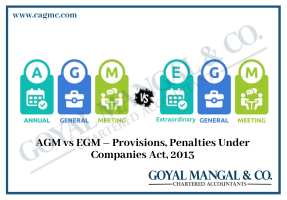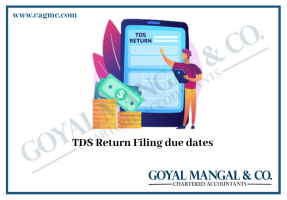
Finalizing your books of accounts entails making sure they have been accurately updated and finalized. There is no chance for account modifications. However, you must first make sure that your books of accounts are accurately completed, with all compliances compiled and you in control of the income tax and GST authorities.
The finalization of your books of accounts today will have an impact on how your accounts are maintained for assessment purposes over the following seven years, and you’re planning today will have an impact on how your business is sponsored by the government over the following five years, as well as how you obtain financing from banks, venture capitalists, investors, or NBFCs.
If your accounting records are accurate and well-organized, you will be able to attract investors and get a true picture of how much money your company is making or losing. This will help you decide whether to invest more money in the company or not because it will feel like there is no room for profit. You may make strategic decisions and compete with your business competition through appropriate accounting. Let’s see more about closing of books of accounts before 31st March 2023.
|
Table Of Content |
Why Should We Close the Books?
A company’s accounting records are referred to as “the books”. Reports that show an owner how much money comes into and goes out of their business are produced using the records.
These reports are complete after your books are closed. These completed reports indicate a company’s financial standing for a specific accounting period, which could be a month or a whole year.
After you provide significant financial reports for your accountant or tax advisor, you should regularly close your books to avoid unintended modifications to your accounting data. For the statements to accurately reflect the real income and expenses for each period, it is crucial in accounting to make sure the expenses are recorded in the appropriate period. Closing the books is one approach to make sure no entries are accidentally recorded in the wrong periods.
What Function Does the Closing Process Serve?
To prevent mistakenly recording income or expenses in prior periods, each period’s closure procedure is necessary. However, shutting the books for the fiscal year is more crucial to accurately display the retained earnings figures on the balance sheet and enable the beginning of a new fiscal year for profit and loss reporting.
Closing Entries Affect on Accounts?
Closing entries have an impact on the following accounts:
- Income statements
- Cost accounts
- Retained Earnings in the Equity Account
When closing entries are added to an accounting system, these temporary or “nominal” accounts are emptied out and reset so they won’t have an impact on the subsequent accounting period.
Closing the Books: Steps to Take
Understanding the fundamental procedures involved will help you know what to anticipate even if you want your accountant to close your books for you. The eight stages you must follow are shown below.
- All transactions are first recorded in the journal: When journal entries are submitted to an account, such as accounts receivable, they are then moved to the general ledger.
To close the books, post the account totals from your cash receipts and sales journal to the relevant general ledger account. Any payments made in cash, by check, or by an electronic fund transfer are referred to as “cash disbursements”. The same is true with your cash receipts diary, however this journal records money coming in rather than going out.
- Sum the General Ledger Account: Add up all the general ledger account transactions. Consider adding up each entry in the accounts receivable book. You are then provided with an estimated finishing balance for each account.
- Create an initial trial balance: A trial balance is created by adding the preliminary ending balances from the previous stage. A trial balance is a report that totals all your company’s credits and debits. If your total credits and total debits don’t add up to the same number, double-check your work. Your accounts will balance if the credits and debits are equal, at which point you can move on to the following action.
- Adjusting Journal Entries: Items that aren’t noted in daily transactions are recorded in adjusting entries. These include real estate taxes that have accumulated (referred to as “accrual” in accounting) or depreciation accrual that must be recorded to close the books. Items in the general journal are adjusted.
- Create a modified trial balance: To build a fresh trial balance, put all your general ledger accounts together, making sure that your debits and credits are once more equal, and then add them all together to account for the amended entries from the previous step. Check your work again if they aren’t the same.
- Create Financial Statements: You can create a balance sheet and income statement (commonly known as a “profit and loss report” or “P&L”) if the trial balance’s total debits and credits are equal. Your accounting software can automatically produce these reports. They provide a summary of a company’s financial situation as of the end of the relevant accounting period, whether it was the previous month or the previous year.
- Closing Entries: The final stage in closing the books for each fiscal year is to zero out all your revenue and cost accounts using journal entries, often known as “closing entries.” Profit and loss are transferred by closing entries into the retained earnings account.
Precautions to be taken while closing Books of Accounts
Let’s talk about the safeguards that should be taken now:
- Whether a reconciliation of the accounts has been performed and that all purchases made for business purposes have been recorded.
- If sales invoices have been received in accordance with the advance payment.
- A reconciliation of your financial accounts.
- Whether you have created the new provision that was implemented in the current fiscal year.
- Whether you have prepared the new GST provision that was implemented this year.
- Whether you have assembled the new GST provision that was implemented this year.
Your staff and your consultant also take care of any provisions and compliances that are carried over from prior years. But due to the possibility of non-compliance with the new regulations, your team and consultant must take extra precautions. In the assessment, newly implemented provisions are examined in the preliminary stage due to a higher likelihood of non-compliance
Precautions and actions to be taken before closing of books of Accounts
- Whether all personal payments made using credit or debit cards are accurately reflected.
- Now that you have earned money, you must assess if you are correctly collecting it from creditors by the due dates and whether you are also dealing with the fact that some of the profit you made was spent in the form of interest owing to non-collection on time.
- If there are bad debts, devise a strategy and take action to reclaim the money.
- Apart from payments made to import products, all foreign payments may be subject to the IGST under RCM.
- Companies that have debtors for more than six months must pay the invoice value to the appropriate suppliers within 180 days. Input tax credit availability must be revoked if it is not made.
- Whether the Companies Act of 2013 has all its provisions compiled.
- Whenever TDS is appropriate, if TDS is deducted from salary payments and other expenses.
- Whether the GSTR1 and GSTR3B have been compared with the books of accounts and the AIS/TIS/26AS have been reconciled with respect to income, expenses, purchases, sales, and investments.
- Whether any demands or refunds were made during the year after the adjustment.
- The entity has secured confirmation from the debtors & creditors.
- Create a plan for the physical inspection of inventories and fixed assets by March 31, 2023.
- Match up the pay structure with the returns that have been filed with various departments.
- Correct any internal audit findings that were found.
- Have you received government sponsorship for your business if you are entitled to do so?
- Whether your company has assembled the new labour laws.
- Whether your company is prepared to ensure that its system controls the income tax and GST authorities.
- Create a report detailing the sources of funding, including how much was obtained through a business, a loan, or a share purchase, where it was invested, and whether it went toward the purchase of fixed assets, inventory, or debt.
Conclusion
Keeping a thorough record of all debits and credits to each account is necessary to keep your books balanced. The reports created from these records can be utilized to inform business owners about the financial health of their company. Owners can use this procedure to keep on track with their business objectives and get ready to file their income tax returns. A business owner can prevent the statements from prior reports from changing the terms of the current reports by shutting their books on a regular basis (monthly, quarterly, or annually). This will prevent an inaccurate report on the state of their business accounts.







